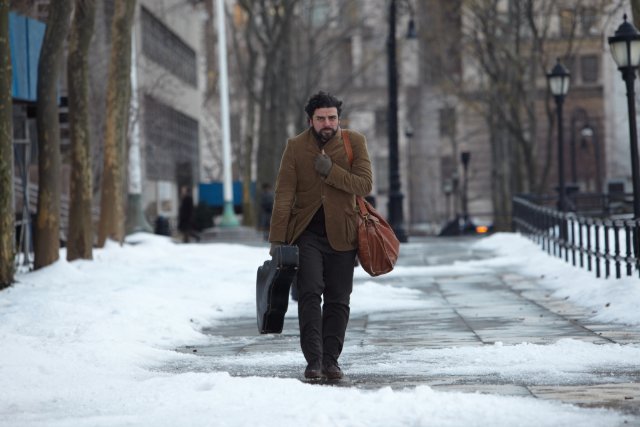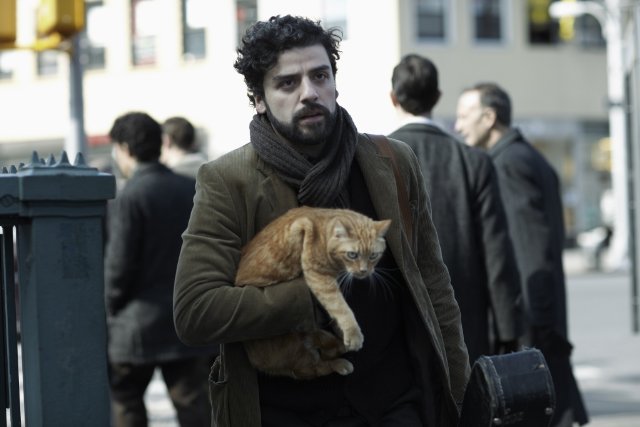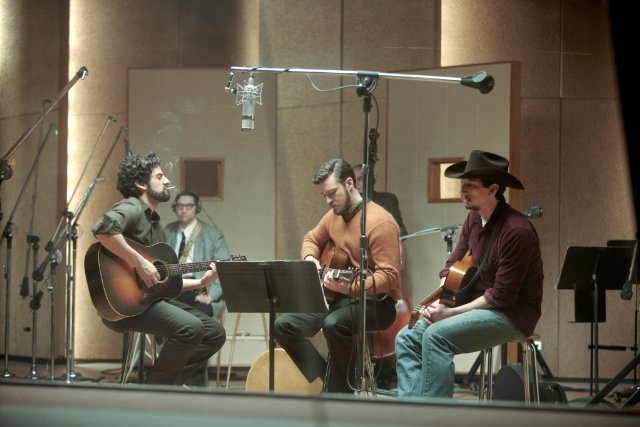
I’ve been in Houston, Texas for the New Year and am headed back to Greenwich Village tomorrow. It will probably be cold, post winter storm Hercules, but it will certainly not be as bleak as the Greenwich Village depicted in the Coen Brothers’ Inside Llewyn Davis.
Videos by American Songwriter
I appreciated the cinematography. Watching the performance scenes at The Gaslight, I felt like I was almost sitting in the room with the audience, and I was reminded of today’s intimate venues like Rockwood Stage 1 and The Bitter End. I enjoyed the intense exploration of the protagonist that we don’t typically see in film these days. I view this indulgence in the individual as an accurate depiction of the beginnings of the singer-songwriter genre—a genre that placed ultimate importance on self-expression and the “authenticity” of the self, paradoxically portrayed under the commercial spotlight. But I’ll be honest. As a songwriter living in Greenwich Village, the film’s singular message rubbed me the wrong way.
Does the pathology of despair have to be the dominant definition of the songwriter? I’d like to think not. I think the media and even academia (the developing field of popular music studies) is wrestling with multiple definitions of what it means to be a singer-songwriter, especially in the last few years. Here’s my point: I don’t want to be sucked into this cesspool of retro-culture despair! That’s one narrative (it’s true), but it’s not the only perspective on the meaning of the singer-songwriter. What bothers me is that according to this culture-of-despair narrative, there is always a price to pay. Songwriters must dive into pools of misery in order to come up for air and see the light of day. This idea of songwriting as pathology is not specific to Inside Llewyn Davis. Donald Bracket’s Dark Mirror: The Pathology of the Singer-Songwriter extends this notion from Bob Dylan and other would-be contemporaries of fictional Llewyn all the way to Amy Winehouse. Oliver Lovesey’s “Anti-Orpheus: Narrating the Dream Brother,” epitomizes this narrative of suffering, as he explains how Jeff Buckley’s death from drowning is interpreted as postmodern disappearance where the non-narrative becomes the narrative he resisted in life. It’s true. Amy Winehouse and Jeff Buckley did suffer. But this doesn’t have to be the dominant narrative applied to defining the singer-songwriter. Let me offer some alternative perspectives on what it means to be a singer-songwriter then and now.
Take Bob Dylan songs. Sure he found inspiration in negative energy — “It’s Alright, Ma (I’m Only Bleeding)” — but he also embraced optimism in songs like “New Morning” when he genuinely sings “so happy just to be alive on this new morning with you,” and believes that this is the day dreams come true. Joni Mitchell, too: She told the sad stories of the loss of Amelia Earheart (relating this to her own life as she sees the strings of her guitar in the hexagram of the heavens) and “Little Green,” another sorrowful tune, this time about having to give up her daughter for adoption. But there is often a trace of optimism in even the saddest Joni tunes, a sense of sweet nostalgia in songs like “Case Of You.” And for every melancholy Joni tune, there is a more optimistic Carole King song. Even in the early torch song tradition, there was emotional complexity—not simply utter sadness as the recent media on songwriting seems to suggest.
Flash forward to now: Regina Spektor (associated with the LES Antifolk scene) destabilizes the usual culture-of-despair narrative in her “postmodern” songwriting about old meatballs and wonder bread next to more serious bible stories. She’s got some depressing songs, but they aren’t completely self-indulgent. Leslie Feist has been extremely successful singing about sea lions and the moon in addition to darker themes of loneliness and broken love. And then there are the talented songwriters who regularly perform in the NYC singer-songwriter scene of today who often evoke sincere optimism in their lyrics. I am struck but Freddie Stevenson’s poetic optimism even as he contemplates feelings of restlessness. In his lyrics for “I am the Ocean,” he sings: “I am the blue sky, I am the ocean, I am the river, I am the rain.” And Aly Tadros elicits a rose-tinted view in her lyrics for “Sweet on Me,” recalling “mid-morning kisses, your locks on my lashes.” In these songs, there is often optimism colored with shades of doubt and happiness laced with longing. But there is no singular narrative that we must bleed.
And now I come back to myself. I don’t have to sink to write a song. Sure, I’ve got some depressing songs. But I also use songwriting as a way to bridge cultural understanding, a way to challenge myself to be empathetic to other people’s experiences. For me songwriting is not always about “inside (insert fictional songwriter’s name), but OUTSIDE (insert fictional songwriter’s name). It’s about understanding and connecting, not always through internal unhappiness.
I sincerely hope that the songwriter doesn’t have to descend into the shafts and wells of misery to be considered a “real” songwriter or to succeed in the music industry. And I sincerely hope that we collectively are NOT in love with the message of Inside Llewyn Davis.
* * * *
Juliane Jones is a singer-songwriter and ethnomusicologist based in New York City and Shanghai.















Leave a Reply
Only members can comment. Become a member. Already a member? Log in.